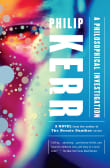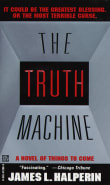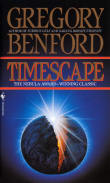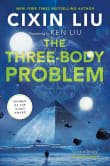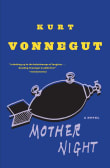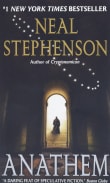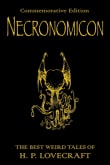Solaris
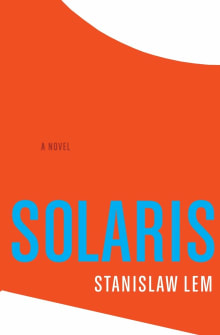
Book description
When Kris Kelvin arrives at the planet Solaris to study the ocean that covers its surface he is forced to confront a painful, hitherto unconscious memory embodied in the physical likeness of a long-dead lover. Others suffer from the same affliction and speculation rises among scientists that the Solaris ocean…
Why read it?
10 authors picked Solaris as one of their favorite books. Why do they recommend it?

As this is a classic from the 70s, the characters and dialogue can be a little flat, but the originality of the story and the emotional angles that were explored were quite extraordinary.

This is, in my humble view, the best science fiction novel ever written. I have read it no less than ten times so far and intend to keep rereading it. What nowadays seems incredible is that it was written back in 1961, when most science fiction was still in its age of innocence, full of naïve assumptions about extraterrestrials and their malevolent ambitions.
It will be many years before the first ideas of benevolent aliens appear and even more before we fully realize Lem's wisdom from Solaris: there isn't going to be any First Contact because Others are neither bad…
From Zoran's list on literary works that I keep rereading.

Published in Poland in 1961, this has been interpreted and misinterpreted a hundred different ways, and I won’t try to repeat that here. However, there is a loneliness haunting the book that I feel that it must be inspired by the social constraints behind the Iron Curtain.
The premise is that humanity has finally found a sentient being in the form of an ocean planet, but all attempts to communicate have failed (to say the least). The planet’s actions are incomprehensible and horrifying. Ultimately, humanity has found another lost soul in the universe, but we will never be friends. We…
From Jools' list on real-life time machines through sci fi.
If you love Solaris...

For a novel on the list, I have only read once, and a long time ago, I still keep thinking about this. It asks: Can we learn about the universe without first learning about ourselves?
It also goes into the limits of science. There are simply things science cannot tell us. The planet’s colloid sea is nonlinear, the math unsolvable, and the alien is potentially hostile. I choose to believe the planet is attempting to heal some deep-forgotten hurt of the narrator. What is the purpose of bringing up a disastrous relationship? To heal or learn? Or perhaps the alien…
From Eric's list on Sci-Fi mindbenders that will have you questioning everything.

I begin my recommendations with a science fiction novel that first got me thinking about the difficulty of understanding other minds when I was a teenager.
Among many other profound philosophical and psychological questions, it’s about the exploration of an intelligent alien mind (and the alien trying to comprehend our minds) and the many things that can go disastrously wrong in the process.
In trying to explore what is going on the cockpit of an insect, I probably continue to make similar errors, though my research is unlikely to result in the doom of spaceship crews, as in this novel.
From Lars' list on animal intelligence – from aliens to octopuses.

I’m often attracted to characters who seem to be haunted – whether by places, people, or their own past. Stanislaw Lem ups the ante a good deal by having his cast of characters apparently haunted by the entire ocean of the planet they’ve landed on. But that isn’t why I find Solaris so moving and intriguing. Just as we’re starting to orientate ourselves to how the planet can bend reality for the astronauts who are based there, Lem throws an entirely unexpected question into the mix – what if the ‘monsters’ don’t realise they’re ‘monsters’, what if they’re as bewildered…
From S. T.'s list on reality becoming unreal.
If you love Stanislaw Lem...

The extended first contact in Solaris is one-way. I like the way that the encounter is described through the extraterrestrial incursion into the minds of the astronauts.
Solaris is unusual in that the life form encountered by the scientists on board an orbiting space station is an ocean. Despite years of attempting communication with the life form, they are unable to progress beyond recording observations of the planet’s swirling surface, which they speculate to be a living entity.
Shortly before the arrival of a new scientist, Kris Kelvin, they bombard the planet with high-energy X-rays. The planet responds by manipulating…
From Owen's list on accessible first contact sci-fi.

On its surface, Solaris is about a protracted, largely failed attempt to communicate with alien life. That in and of itself provides the basis for a great philosophical novel, as it immediately invokes questions of the nature of language, our place in the universe, and so on. However, what makes Solaris special is that it simultaneously implicates communication between human beings in the questions it asks. It takes seriously the problems of epistemology (the study of knowledge) and of the philosophy of mind. What is consciousness, and how can I know it? How can I understand the consciousness of an…
From K.K.'s list on exploring philosophy through fiction.

When asked what my favorite book is, the answer is quite definitively Solaris as it exemplifies everything that great sci-fi can accomplish. Having seen Andrei Tarkovsky’s film and been intrigued by its premise of love, obsession, and guilt in the face of something beyond all human comprehension (a living planet!), I was inspired to explore its source material. I found Stanislaw Lem’s book enthralling and like Kris Kelvin’s obsession with his late wife, it’s a story that haunts me and keeps coming back to be relived again and again! The futility of trying to understand things beyond human comprehension and…
From Paul's list on inspiring me as a storyteller and filmmaker.
If you love Solaris...

In this classic volume, the sentience on an alien planet is so metaphysically distant from humanity that it causes its cosmonaut investigators to hallucinate and collapse. The Solaris alien, a seemingly cognizant ocean, is a permanent enigma, completely unframable by any human thought process.
The story begins with a simple, evocative setup. Three scientists studying an alien planet begin receiving unwelcome "visitors" — apparently, human figures from the long-dead past, returned to haunt the living. They appear (and reappear) while the scientists sleep, as though dragged into the waking light from the deepest recesses of their subconscious guilt, dread, and…
From John's list on psychological thrillers that will make you think.
If you love Solaris...
Want books like Solaris?
Our community of 12,000+ authors has personally recommended 84 books like Solaris.



